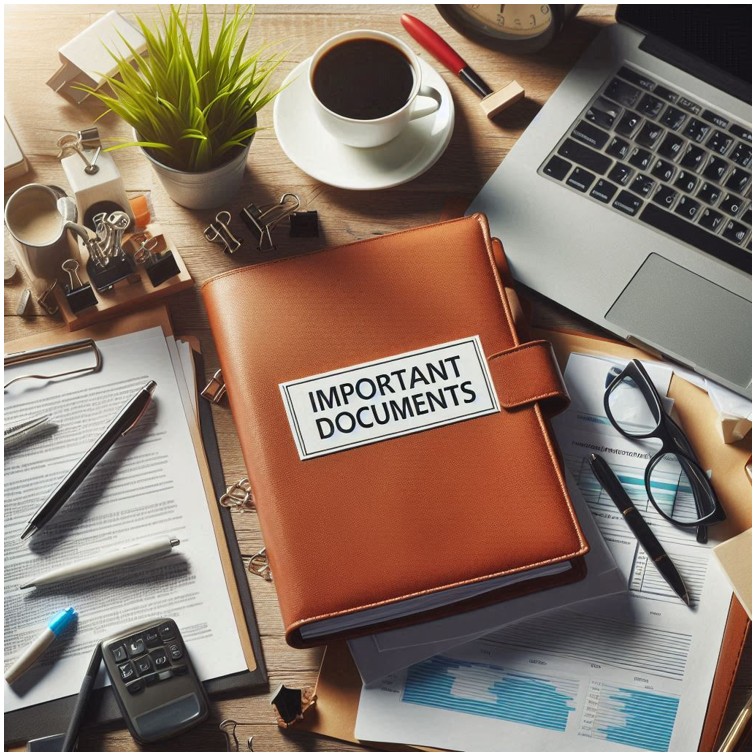The Importance of Keeping All Your Important Documents in One Place
In today’s fast-paced world, staying organized is crucial, especially when it comes to managing important documents. Whether it’s for personal use, work, or emergencies, having all your key documents in one place can save time, reduce stress, and ensure you have what you need when you need it. Here’s a guide to help you understand the importance of keeping your important documents organized and how to do it effectively.
Why Keeping Important Documents Organized Matters
1. Easy Access
• Quick Retrieval: Having all your important documents in one place allows for easy and quick access whenever you need them, whether it’s for filing taxes, applying for a loan, or handling legal matters.
• Emergency Preparedness: In case of an emergency, such as a medical situation or natural disaster, having your documents organized ensures you can grab them quickly and evacuate if needed.
2. Reduces Stress and Saves Time
• No More Searching: An organized system eliminates the need to search through piles of papers or multiple locations, saving you time and reducing frustration.
• Efficient Management: Keeping everything in one place makes it easier to manage and maintain your documents, ensuring they are up-to-date and easily accessible.
3. Financial Organization
• Track Expenses and Income: Organized financial documents help you track expenses, manage income, and prepare for tax season more efficiently.
• Proof of Transactions: Having receipts, invoices, and bank statements readily available provides proof of transactions and can be useful for resolving disputes.
4. Protects Against Loss and Damage
• Secure Storage: Keeping your important documents in a safe and secure location protects them from loss, theft, or damage due to fire, water, or other hazards.
• Digital Backups: Creating digital copies of your documents ensures you have backups in case the physical copies are lost or damaged.
How to Organize Your Important Documents
1. Gather All Documents
• Identify Essentials: Gather all essential documents such as birth certificates, passports, social security cards, wills, insurance policies, medical records, financial statements, and property deeds.
• Categorize by Type: Sort the documents into categories such as personal identification, financial, legal, medical, and property.
2. Choose a Storage Solution
• Physical Storage: Use a fireproof and waterproof safe or filing cabinet to store physical copies of your documents. Label folders or envelopes clearly for easy identification.
• Digital Storage: Scan and save digital copies of your documents on a secure cloud storage service or an encrypted external hard drive. Use a folder system to organize the files logically.
3. Create a Document Checklist
• Inventory List: Create a checklist or inventory list of all your important documents. Include details such as document type, location, and any relevant dates.
• Regular Updates: Review and update the checklist regularly to ensure all information is current and accurate.
4. Establish a Routine
• Consistent Filing: Develop a habit of filing documents as soon as you receive them. This prevents clutter and keeps your system organized.
• Periodic Review: Set aside time periodically to review and declutter your documents. Shred any outdated or unnecessary papers to maintain a streamlined system.
5. Inform Trusted Individuals
• Share Information: Inform trusted family members or legal representatives about the location of your important documents and how to access them in case of an emergency.
Final Thoughts
Keeping all your important documents in one place is essential for staying organized and prepared. By implementing a system that includes both physical and digital storage solutions, you can ensure easy access, protect against loss, and reduce stress. Take the time to organize your documents today and enjoy the peace of mind that comes with being prepared. Happy organizing!


 Facebook
Facebook
 X
X
 Pinterest
Pinterest
 Copy Link
Copy Link


